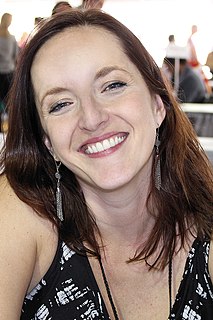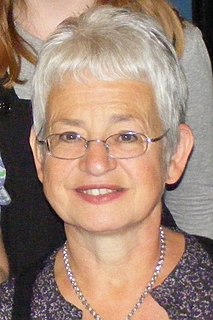A Quote by Harlan Ellison
I never send a story off until I have read it aloud to at least two or three people. Because when I read - and I don't need their criticism, what I need is my own - when I read it aloud, there is a flow, there is a poetry to it.
Related Quotes
We have an obligation to read aloud to our children. To read them things they enjoy. To read to them stories we are already tired of. To do the voices, to make it interesting, and not to stop reading to them just because they learn to read to themselves. Use reading-aloud time as bonding time, as time when no phones are being checked, when the distractions of the world are put aside.
If we are always reading aloud something that is more difficult than children can read themselves then when they come to that book later, or books like that, they will be able to read them - which is why even a fifth grade teacher, even a tenth grade teacher, should still be reading to children aloud. There is always something that is too intractable for kids to read on their own.
Truly fine poetry must be read aloud. A good poem does not allow itself to be read in a low voice or silently. If we can read it silently, it is not a valid poem: a poem demands pronunciation. Poetry always remembers that it was an oral art before it was a written art. It remembers that it was first song.
Experts generally agree that taking all opportunities to read books and other material aloud to children is the best preparation for their learning to read. The pleasures of being read to are far more likely to strengthen a child's desire to learn to read than are repetitions of sounds, alphabet drills, and deciphering uninteresting words.
I never need to find time to read. When people say to me, ‘Oh, yeah, I love reading. I would love to read, but I just don’t have time,’ I’m thinking, ‘How can you not have time?’ I read when I’m drying my hair. I read in the bath. I read when I’m sitting in the bathroom. Pretty much anywhere I can do the job one-handed, I read.
I've only cried at one book, but I'm too embarrassed to tell you which. It wasn't terribly intellectual. I will admit, though, to crying when I've read books aloud to my elementary class. We read a biography of Gandhi once, and it was very difficult to read the part where Gandhi was killed, because they were waiting for a happy ending.





































